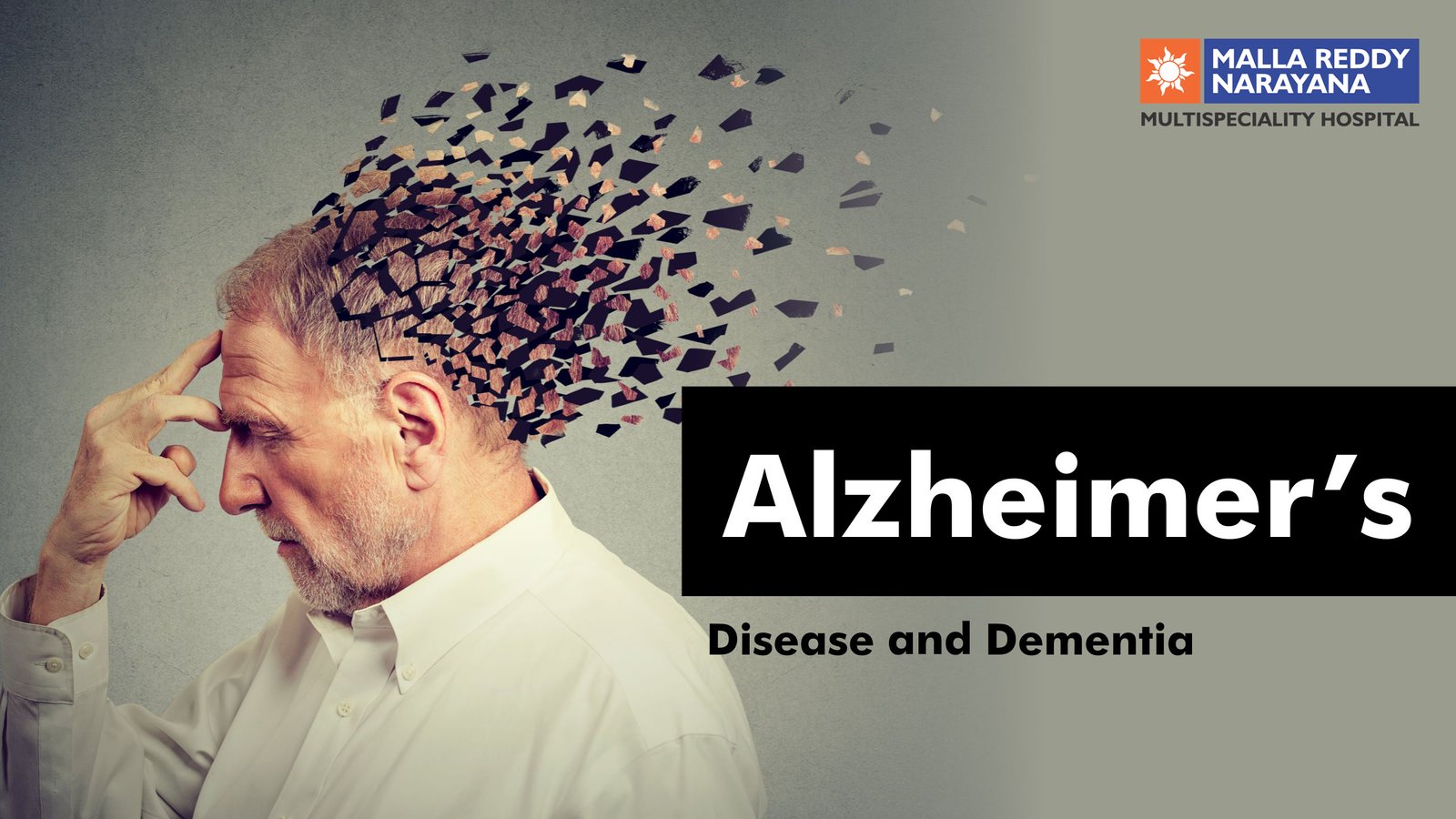Alzheimer’s is a progressive disorder that causes the brain to shrink and causes the death of brain cells by affecting the neurons in the brain. Dementia isn’t technically a disease but more of a way to describe a set of symptoms like poor memory and difficulty learning new information which can make it hard to function independently, usually dementia is caused by some sort of damage to the cells in the brain which can be caused by a variety of diseases. Alzheimer’s disease is the most common cause of dementia. Alzheimer’s disease is a neurodegenerative disease that means it causes the degeneration or loss of neurons in the brain particularly in the cortex, as you might expect leads to the symptoms which are characteristic of dementia.
What are the Symptoms of Alzheimer’s Disease?
1.) MEMORY LOSS
The key symptom of Alzheimer’s is progressive Memory Loss, At early stages this problem of memory loss causes one to forget recent conversations and events, everyone has memory problems sometimes, but the loss of memory power due to Alzheimer’s gets more severe as time passes by. At first, the person affected is aware of having a memory problem but as time progresses the symptom goes from forgetting simple tasks to losing memory about a loved one, These changes are most evident to the family members of the one affected. Some more visible changes that are perceived by observing the person affected with Alzheimer’s are:-
* Having difficulty in navigating in places they are very familiar with.
* Often forgetting the names of daily use objects and words used in daily conversation.
* Misplacing personal belongings, and most of the time keeping them in illogical locations.
* Forgetting topic mid-conversation, repeating questions and statements over and over.
Other psychological changes happen to a person as the disease progresses.
2.) LOSS OF REASONING AND THINKING ABILITY
People with Alzheimer’s have difficulty in concentrating, concepts like arithmetic become very difficult for them to deal with. Daily tasks requiring basic mathematical skills like finance become challenging, this condition continues to worsen until the patient loses their ability to deal with the abstract concept of numbers.
3.) PLANNING AND JUDGEMENTS BECOME HARDER
Alzheimer’s disease causes a person to lose the ability to make basic everyday decisions, routine activities like cooking or playing, which we don’t even have to think while performing becomes a struggle. It goes to the point where the person is unable to perform basic activities like bathing and dressing up.
Even amidst the storm taking away all the aspects of the person that made them who they are, certain aspects of the personality still manage to be preserved, the reason being that they are controlled by the part of the brain that is affected at the terminal stages of Alzheimer’s. The skills include reading, listening to music, dancing, drawing, or other forms of art and craft.
What causes Alzheimer’s Disease?
According to scientists for most people, this disease is caused as a combined result of genetic and environmental factors. In a gist, for a person with Alzheimer’s, the proteins present in the brain start to function abnormally, hence disrupting the proper functioning of brain cells. This acts as the trigger of the chain of degradation of neurons. The result of this degradation is first seen in the memory unit of the brain. This degeneration continues and the brain continues to shrink in size.
As per the research, the two major protein that plays the role in Alzheimer’s are:-
(a.) Plaques: Also known as beta-amyloid is a fragment of the protein, formed due to a mispair of proteins. These fragments later form a cluster and have a toxic effect on neurons by hampering the communication between the neurons. When these clusters become large they are referred to as plaques.
(b.) Tangles: The proteins known as Tau protein, acts as a support and transport system which carries nutrients that are essential for cells. In Alzheimer’s, the shape of these proteins is altered and they arrange themselves into a structure known as neurofibrillary tangles, hence the name Tangles.
What are the Risk Factors for Alzheimer’s Disease?
Though the exact cause of Alzheimer’s is not known, certain risk factors can act as a catalyst for Alzheimer’s. The major risk factors constitute the following:-
1.) Age: Although there is no direct connection between Alzheimer’s and age, almost 90% of the cases are of people above 60 Years of age and the risk only increases with time.
2.) Down Syndrome: People who have down syndrome often have a high chance of getting Alzheimer’s.
3.) Head Trauma: For people with a Traumatic Brain Injury (TBI), the risk of Alzheimer’s is significantly higher than that for people who have never had TBI.
4.) Alcohol Consumption: Alcohol consumption is associated with changes in the brain, causing early onset of dementia, hence also putting one at risk of getting Alzheimer’s.
5.) Irregular Sleep Pattern: Several scientific researches have shown that people who suffer from poor and irregular sleep, have higher chances of getting Alzheimer’s.
What are the Preventions?
Alzheimer’s itself is not a disease that can be stopped, but there are certain lifestyle changes one can implement that will help minimize the risks of getting the disease.
(1.) Do regular exercise.
(2.) Having a healthy diet.
(3.) Maintain your blood sugar and blood pressure at healthy levels.
(4.) Actively participate in social events, play sports, and do something creative every once in a while.
Alzheimer’s, as of now is not cure-able but maintaining a balance in all areas of life, can help us avoid getting into the clutches of the disease.











